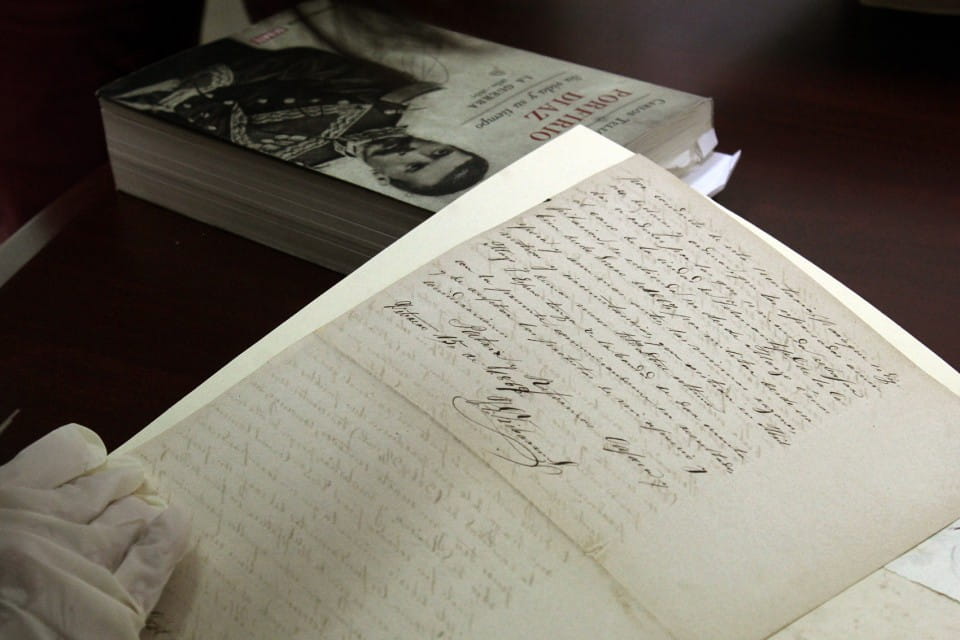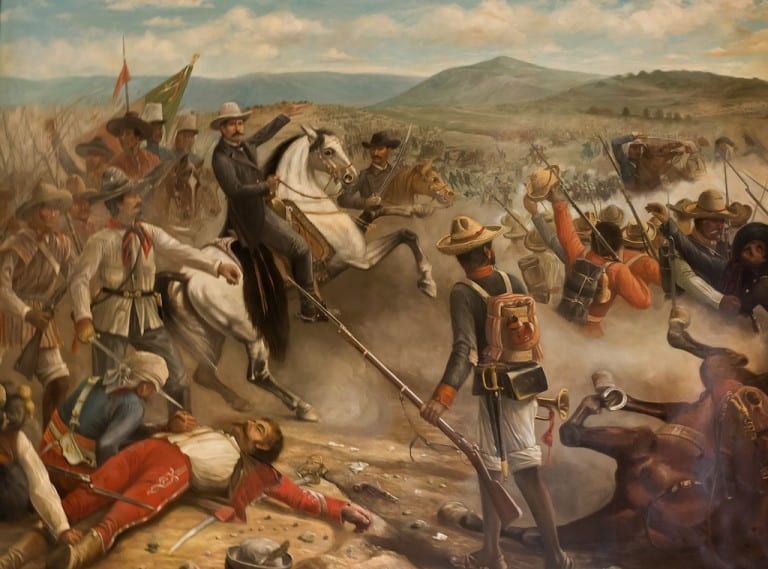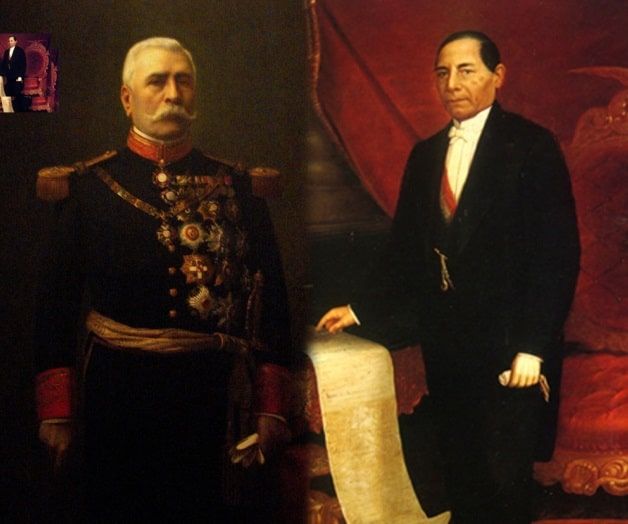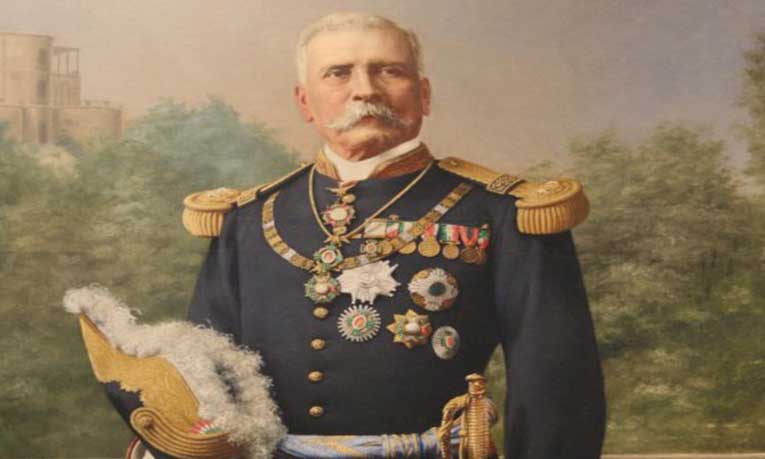General Díaz, the protagonist of the battle of Nochixtlán: The victory against the French Army 155 years ago
Nochixtlan battle is considered the beginning of the end of the French invasion in Mexico and General Jose de la Cruz Porfirio Diaz Mori, its protagonist. The 155th anniversary of the victory against the French Army.

The story goes that General José de la Cruz Porfirio Díaz Mori, together with his brother Félix Santiago El Chato, met again in Asunción Nochixtlán, on September 1866. It was there where they decided to regroup and rescue the city of Oaxaca, occupied by the forces of the French army.
At that point in the Mixtec region, both soldiers agreed on the strategy to recover the capital and other places in Oaxaca, besieged by the French. They were very familiar with Santa María Asunción Nochixtlán, at one time prosperous for the grana cochineal trade. In Nochixtlán, the drums of war sounded, the Díaz Mori brothers led a battle against the Hungarian cavalry.
They learned that a detachment of the Austrian and Belgian armies, which participated with the French, loyal to Emperor Maximilian of Habsburg, was in the surroundings of the Mixteca, so on September 23, before dawn, they left in pursuit with their cavalry. Porfirio and Felix fought together in the battle: they collected three dead and more than twenty wounded.
Among the dead, the Count of Gantz was found, who was buried, by orders of General Diaz in the municipal cemetery of Nochixtlán. His tomb remains to this day. This battle, which took place 155 years ago, is considered the beginning of the end of the French invasion of Mexico. Everyone sang of this triumph. President Juarez himself, in his journey through the northern lands, listened attentively to the conquests of Porfirio, his countryman.
Before recovering the state capital, which is considered the fall of Maximilian's Empire, Diaz also won the battles of Miahuatlan and La Carbonera, near the municipality of San Francisco Telixtlahuaca, in the Central Valleys. This would give him national fame.

Battle on the side of the Cuerudos
The battle of Miahuatlán took place on October 3, 1866, in the vicinity of the town of the current municipality of Miahuatlán de Porfirio Díaz, in the region of the Sierra Sur, between elements of the Mexican Army and peasants, under the command of General Díaz Mori and French troops at the service of the Second Mexican Empire, led by Maximilian of Habsburg.
The topography of the battle site, near the town of Miahuatlán, and the knowledge of the terrain gave the Oaxacan the triumph, which he would later consider in his memoirs as the most strategic and brilliant action he fought during the Second French Intervention since with only approximately one thousand people he defeated the French army, with more than twice the number of troops, better armed and trained than the Mexicans.
The offensive against the French army was joined by the local inhabitants, brave Miahuatecos. General Porfirio Díaz concentrated between Loma del Panteón and Loma de Los Nogales, his reduced troops, and the Miahuatecos, known by the nickname of 'los cuerudos', defeated their enemies, the French, even though they were fewer and did not have enough weapons. It is said that it was Porfirio Diaz's strategy that granted them the triumph. Diaz developed an innate military ability to "ambush", and that talent was the beginning of his triumphs in battle.
The Battle of La Carbonera
Like the battles of Nochixtlán and Miahuatlán, the battle of La Carbonera, in San Francisco Telixtlahuaca will also be 155 years old. It was on October 18, 1866, which the national arms, led by General Diaz covered themselves with glory by defeating the invading army. In that place, today in the outskirts of Oaxaca City, was where the Soldier of the Homeland, at the head of the Army of the East, inflicted the third mortal wound to the French army. Once again, despite their numerical inferiority, the Mexican soldiers managed to defeat the army of the conservative general Carlos Oronoz.
In his report of war, General Porfirio Díaz informed: "We began to fight at one o'clock, with tenacity and courage on both sides, it is seven o'clock at night and I find myself in the spot of Las Minas, after three leagues of the pursuit of the enemy, having in my power 396 Austrian, Polish and Hungarian prisoners, seven of them are officers...".

Porfirio Díaz Mor, admirer of Juarez
Born in Oaxaca in 1830, Porfirio Díaz Mori felt enormous admiration for Benito Juárez from a very young age, of whom he would be a firm supporter for many years. Due to his influence, he abandoned his ecclesiastical career and went to university to study law, but decided to join the army because of the pronunciation against President Santa Anna for his imposed reelection.
He was an outstanding student and at the age of 19 he was already an assistant professor of Latin; at that time he supported his family and paid for his studies with the money he earned by giving lectures. Once in the army, he fought first against the United States, then against the French, and later against Emperor Maximilian, three wars in which he had the opportunity to give proof of enormous courage and bravery so that with little more than thirty years of age he had already become a glorious general.
In 1871 he formed the Porfirian party to denounce Juarez's abuse of power, giving a new turn to his ambition and directing it towards the assumption of the highest political office. However, it was Sebastián Lerdo de Tejada who became president when Juárez died of a heart attack the following year.
Porfirio Díaz seconded his strategy and served as deputy for Oaxaca for some time and then retired to private life, but when he learned that Lerdo intended to run for reelection, he fought him and took the presidency himself on November 26, 1876.
Legality was reestablished when he was elected by Congress as constitutional president on May 5, 1877. During his first mandate, he reformed the Constitution to impose, as he had always defended, the non-reelection of presidents, and congruent with his ideas, in 1880 he ceded the government of the nation to General Manuel González, who held power until 1884 because on that date Porfirio Díaz returned to stay until 1911.

After holding the rank of general, he was elected as a federal deputy in 1861. During the French intervention he attended the battle of Puebla in 1862 and the following year, in the same city, he was defeated and taken prisoner. He managed to escape and returned to arms. He took Taxco and occupied Oaxaca, where he became governor from December 1, 1863, to February 12, 1864.
In Oaxaca, he rejects Maximilian's emissaries who invite him to become his ally, which Diaz considers an offense, and threatens to shoot any other envoy who arrives with the same offer. On February 8, 1865, without weapons, he was forced to surrender Oaxaca to the invaders, who apprehended him.
Again he managed to escape, and in September of that year, already as a divisional, he obtained the victory in Tehuitzingo and began an impressive chain of victories, such as that of Nochixtlán, in the Mixtec region, followed by Miahuatlán and La Carbonera, which allowed him to recover Oaxaca and become governor again (October 31 to December 11, 1866), the battle of April 2, when he retakes Puebla, and the occupation of Mexico City, on June 21, 1867, which ended the war against the empire. That same year he ran for President of the Republic, but Benito Juárez was reelected.
In 1868 he is granted a license to leave the army. In 1871 he presents again his candidacy to the Presidency, but Congress reelects Juarez for another term. In November of that year, he launches the Plan de la Noria, through which he disowns Juarez, and takes up arms. The Plan stipulates that "no citizen should impose and perpetuate himself in the exercise of power".




